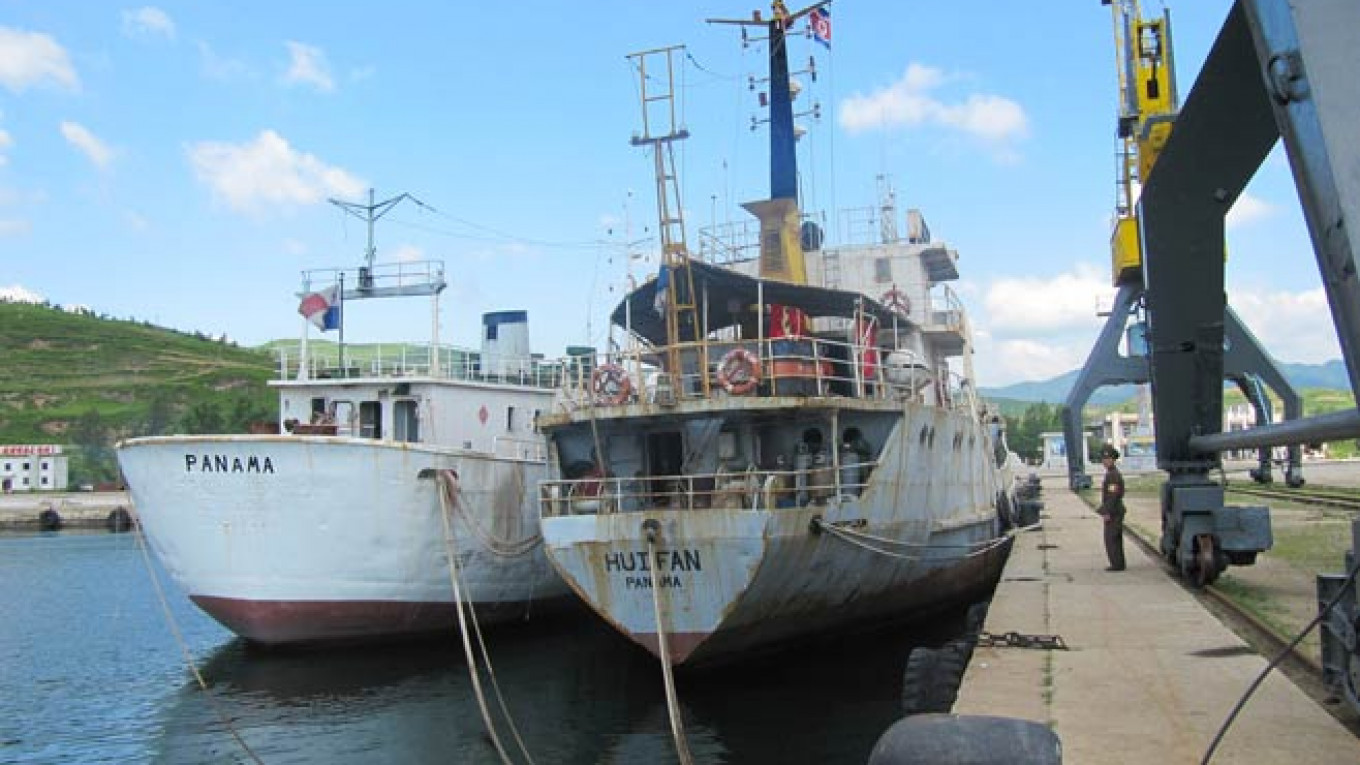Russian Railways has put to use the North Korean port it helped to upgrade recently.
The state-owned railway operator said Tuesday it had started carrying Siberian coal to the port of Rajin, in what may be the first attempt to utilize the harbor after it reopened in September.
"The company has started to provide a full suite of services to ship coal through Rajin to Asia-Pacific countries," said a statement from Russian Railways logistics subsidiary, RZhD Logistika.
A joint venture between Russian Railways and the North Korean Ministry of Railways has rebuilt one of the port's wharfs and a rail link connecting it to Russia in a rare example of foreign involvement in the economy of the isolated dictator state. The joint venture, RasonKonTrans, where Russia holds 70 percent, sought to relieve the congestion at Russia's Pacific ports.
Coal miner and steelmaker Mechel is the sender of the coal consignments, according to Nadezhda Malysheva, chief editor of port industry portal PortNews.
Both Mechel and RzhD Logistica spokespersons declined to comment.
Russian Railways chief Vladimir Yakunin traveled to Rajin for a grand opening of the rail service and the wharf in September. The company invested 9 billion rubles ($250 million) to upgrade both. Russian engineers supervised the work, while Koreans largely contributed with unskilled labor.
The Russian terminal at Rajin, Asia's most northerly all-year ice-free port, will at first handle just coal freight from Russia to ship it further to China's eastern and southeastern provinces. Further plans are to equip it to be able to provide container services.
RZhD Logistika loaded a total of 9,000 metric tons of coal on two freight trains of 130 cars each to carry to Rajin at the end of last month, it said in the statement. The cargo will next go to China's ports of Shanghai, Lianyungang and Guangzhou.
Current load capacity of port Rajin is 4 million tons of coal a year.
Russia's biggest coal export port, Vostochny, which sits on the Pacific coast, has the capacity to handle 18 million tons a year, Malysheva said. It and the other key coal port of Vanino operate at the top of their capacity, as exports of the fuel to Asia have increased, she said.
Coal remains the principal fuel for electricity generation at power plants in China. But its coal price declined 10 percent last year because of strong rivalry among Russian suppliers and competition from Australia, the RZhD Logistika statement said.
Even so, the government last week backed a plan to boost development of the coal-mining industry in the country's Far East to cater to Asian markets. The idea is to have a shorter transportation leg for the shipments, compared with the distance that the coal travels from Siberia.
Contact the author at [email protected]
A Message from The Moscow Times:
Dear readers,
We are facing unprecedented challenges. Russia's Prosecutor General's Office has designated The Moscow Times as an "undesirable" organization, criminalizing our work and putting our staff at risk of prosecution. This follows our earlier unjust labeling as a "foreign agent."
These actions are direct attempts to silence independent journalism in Russia. The authorities claim our work "discredits the decisions of the Russian leadership." We see things differently: we strive to provide accurate, unbiased reporting on Russia.
We, the journalists of The Moscow Times, refuse to be silenced. But to continue our work, we need your help.
Your support, no matter how small, makes a world of difference. If you can, please support us monthly starting from just $2. It's quick to set up, and every contribution makes a significant impact.
By supporting The Moscow Times, you're defending open, independent journalism in the face of repression. Thank you for standing with us.
Remind me later.






